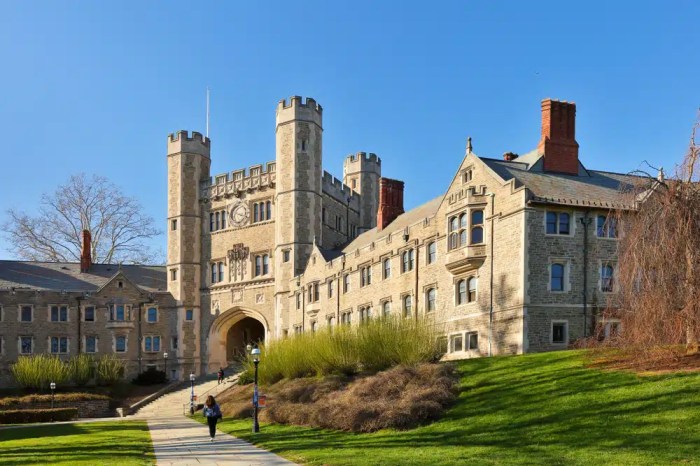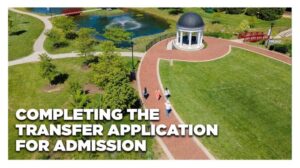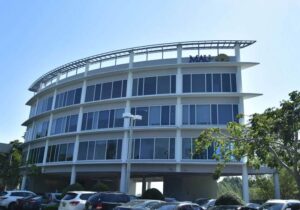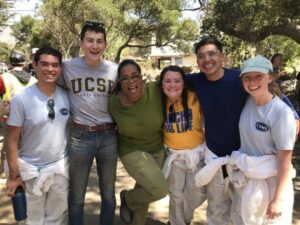Princeton University, a renowned institution of higher learning, calls a specific state its home. Embark on an enlightening journey to uncover the location of this prestigious university and delve into its captivating history, academic excellence, and vibrant campus life.
Nestled amidst a landscape of intellectual pursuits and historical charm, Princeton University has played an integral role in shaping the state it resides in. Its founding and subsequent contributions have left an enduring legacy, making it an invaluable asset to the region.
Location and History

Princeton University is located in Princeton, New Jersey, a town in Mercer County. The university’s campus is situated in the central part of the state, about 50 miles southwest of New York City and 30 miles northeast of Philadelphia.
Princeton University was founded in 1746 as the College of New Jersey. It was the fourth college to be established in the American colonies, after Harvard, William & Mary, and Yale. The college was originally located in Elizabeth, New Jersey, but it moved to Princeton in 1756.
Significance to the State
Princeton University has played a significant role in the history of New Jersey. The university was a major center of learning and culture in the colonial era, and it continued to be a leading institution of higher education in the United States after the Revolution.
Princeton University has also been a major economic force in New Jersey. The university is a major employer in the state, and it has helped to attract other businesses and industries to the area.
Academic Programs and Research

Princeton University stands as a beacon of academic excellence, renowned for its rigorous academic programs and groundbreaking research initiatives. The university’s unwavering commitment to intellectual exploration has fueled groundbreaking discoveries that have transformed various fields of knowledge.
Princeton offers a comprehensive range of undergraduate and graduate programs across the humanities, social sciences, natural sciences, and engineering. Its undergraduate program emphasizes a broad liberal arts education, fostering critical thinking, problem-solving abilities, and a deep understanding of the human condition. The graduate programs delve into specialized fields, equipping students with the necessary knowledge and skills to become leaders in their respective disciplines.
Research Initiatives
Princeton’s research endeavors are equally impressive. The university houses numerous research centers and institutes dedicated to cutting-edge investigations in areas such as astrophysics, molecular biology, climate science, and artificial intelligence. These centers bring together interdisciplinary teams of researchers, fostering collaboration and innovation.
- The Princeton Plasma Physics Laboratory conducts groundbreaking research on nuclear fusion, a promising energy source for the future.
- The Lewis-Sigler Institute for Integrative Genomics investigates the complex interactions between genes, the environment, and human health.
- The Princeton Environmental Institute addresses pressing environmental challenges through interdisciplinary research and policy analysis.
Princeton’s research has led to significant advancements in various fields. For instance, the university’s contributions to astrophysics include the discovery of the cosmic microwave background radiation, a remnant of the Big Bang, and the development of the Hubble Space Telescope, which has revolutionized our understanding of the universe.
Princeton’s commitment to academic excellence and groundbreaking research has established it as one of the world’s leading universities. Its unwavering pursuit of knowledge continues to drive innovation and shape the future of various disciplines.
Campus and Facilities
Princeton University’s campus is a breathtaking blend of architectural beauty and historical significance. The university’s iconic buildings, many of which date back to the 18th century, are a testament to the institution’s rich history and tradition.
In addition to its architectural charm, Princeton’s campus is also home to state-of-the-art facilities and resources that support the university’s world-renowned research and teaching. These facilities include:
Libraries
- The Princeton University Library is one of the largest and most comprehensive research libraries in the world, with a collection of over 13 million volumes.
- The Firestone Library is the university’s main library and houses the majority of the library’s collection.
- The Marquand Library is a specialized library that houses the university’s collection of rare books and manuscripts.
Museums
- The Princeton University Art Museum is home to a collection of over 92,000 works of art from around the world.
- The Princeton University Museum of Natural History is home to a collection of over 10 million specimens of plants, animals, and fossils.
Research Centers
- The Princeton Institute for Advanced Study is a world-renowned research center that brings together some of the world’s leading scholars in the natural sciences, social sciences, and humanities.
- The Princeton Plasma Physics Laboratory is a leading research center in the field of plasma physics.
Student Life and Culture
Princeton University fosters a vibrant and inclusive student life experience. With a diverse student body representing over 130 countries, the university is committed to creating a welcoming and supportive community for all its members.
Princeton’s student life is characterized by its numerous student organizations, clubs, and activities. Students can choose from over 500 student-run groups, ranging from academic societies to cultural clubs, athletic teams, and social organizations. These groups provide opportunities for students to connect with others who share their interests, develop leadership skills, and contribute to the campus community.
Diversity and Inclusion
Princeton University is deeply committed to diversity and inclusion. The university believes that a diverse and inclusive community is essential for fostering innovation, creativity, and a sense of belonging. Princeton has implemented numerous initiatives to promote diversity and inclusion, including:
- The Office of Diversity and Inclusion, which provides support and resources to students from underrepresented backgrounds.
- The Center for LGBTQ+ Life, which provides a welcoming and supportive space for LGBTQ+ students.
- The Women’s Center, which supports women and gender-diverse students through advocacy, programming, and research.
- The Disability Services Office, which provides accommodations and support for students with disabilities.
Notable Alumni and Faculty

Princeton University boasts a remarkable roster of distinguished alumni and faculty who have left an indelible mark on society and academia. Their contributions have shaped fields ranging from politics to science, the arts to business, and have played a pivotal role in shaping the university’s reputation as a global center of intellectual achievement.
Princeton’s alumni network is a testament to the university’s commitment to excellence and its ability to attract and nurture exceptional individuals. Among its notable graduates are former U.S. presidents Woodrow Wilson and James Madison, Supreme Court justices Samuel Alito and Sonia Sotomayor, and renowned scholars like Albert Einstein and John von Neumann.
Faculty
- Albert Einstein, theoretical physicist and Nobel laureate, revolutionized our understanding of the universe with his theories of relativity.
- John von Neumann, mathematician and computer scientist, made fundamental contributions to quantum mechanics, game theory, and the development of the modern computer.
- Toni Morrison, Nobel laureate in literature, wrote powerful and critically acclaimed novels that explored the complexities of race, gender, and the American experience.
Alumni
- Woodrow Wilson, 28th President of the United States, led the nation through World War I and played a key role in the establishment of the League of Nations.
- James Madison, 4th President of the United States, is known as the “Father of the Constitution” for his contributions to the drafting and ratification of the U.S. Constitution.
- Samuel Alito, Associate Justice of the Supreme Court of the United States, is a prominent conservative jurist.
- Sonia Sotomayor, Associate Justice of the Supreme Court of the United States, is the first Hispanic justice to serve on the court.
- Jeff Bezos, founder and former CEO of Amazon, is one of the wealthiest and most influential entrepreneurs in the world.
Essential Questionnaire
In which state is Princeton University situated?
Princeton University is located in the state of New Jersey, United States.




